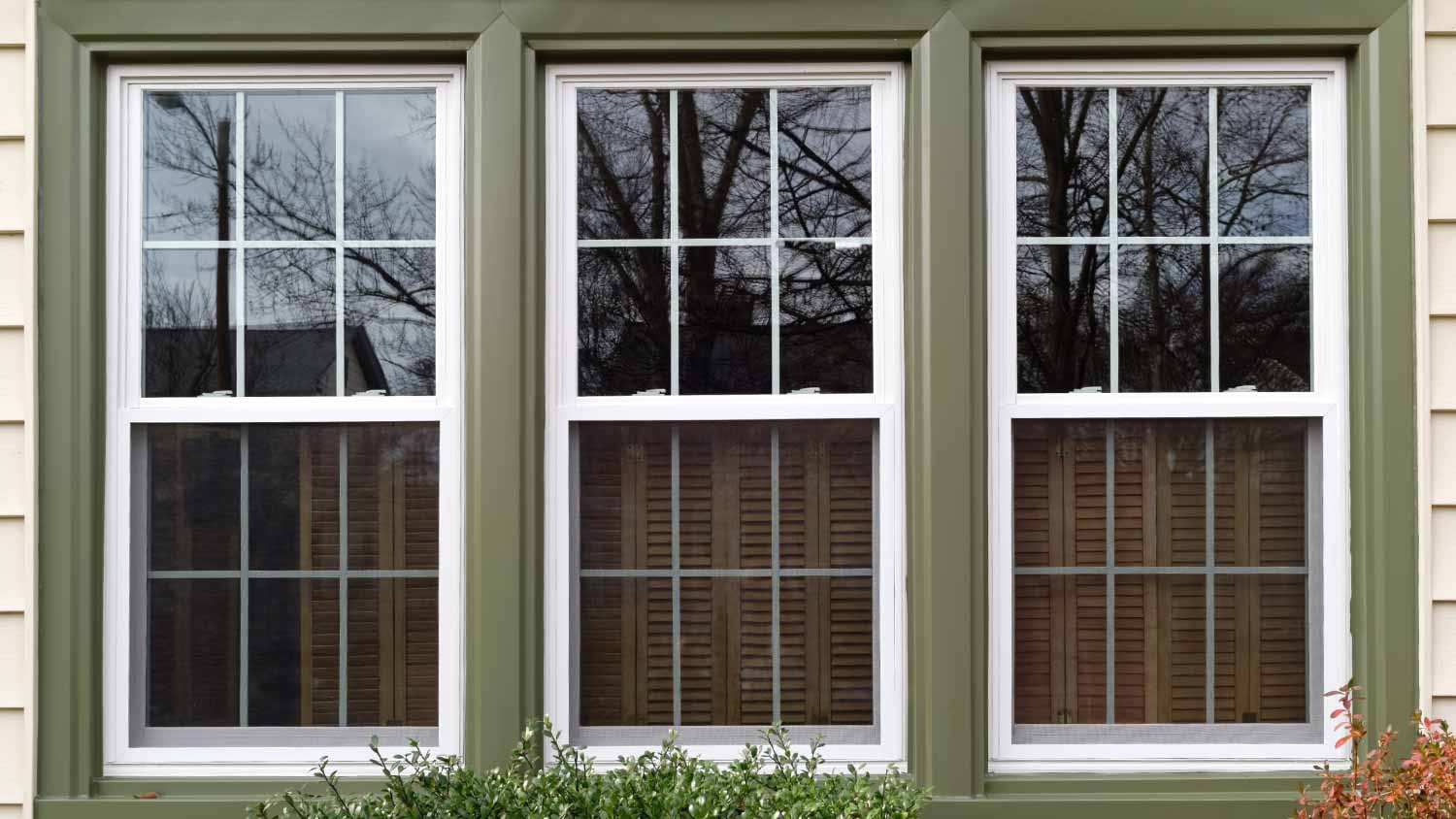Types of Vinyl Windows
Standard
Standard vinyl windows are the simplest, most cost-efficient route. They have a hollow PVC frame with no added insulation. These windows are good for achieving a simple, minimalist look or finding a low-cost solution in the short term, but they could wear down quicker than other vinyl windows.
Composite
A composite window blends two or more materials to enhance strength, whether it’s fiberglass and wood, vinyl and wood, or something else entirely. If you need durability and insulation, a composite vinyl frame is probably a safe bet for your home. This type of vinyl window lasts longer than standard vinyl, but it costs more, too.
Engineered
Engineered vinyl is the highest quality of vinyl windows. The term “engineered” can mean different things depending on the manufacturer you choose. Engineered vinyl typically means the PVC has been specially blended with other materials to make it stronger, meaning it usually comes with other added benefits.
It could be a vinyl exterior over a wooden frame, fade-free glass, or a frame enhanced with titanium dioxide. Engineered vinyl is the best choice for durable, long-lasting windows, but keep in mind that they come with the highest price point.
Are Vinyl Windows Worth the Cost?
The other types of replacement windows you’ll see on the market are wood, aluminum, fiberglass, and composite blends (combinations of materials). Wood and fiberglass are considered the highest quality windows for their pleasing aesthetic, built-in insulation, and long-lasting reputation. They’re also the most expensive, averaging $725 to $1,000 per window to install.
On the other end of the spectrum are aluminum windows, which have thin frames that last 20 to 25 years but don’t provide the insulation that wood and vinyl do. Aluminum windows conduct heat in the summer and can rust or corrode if moisture from snow or rain leaks into the frame. Aluminum is a good option if the upfront price is your main concern since it costs an average of $240 per window to install.
Vinyl windows are like the Goldilocks window: they’re low-cost but deliver the energy efficiency and durability that wood windows are known for. Their material is flexible and lightweight, so they’re easy to operate for all ages. They can cost anywhere from $100 to $900 per window to install and last for about 15 to 20 years.
Overall, the cost of vinyl windows is lower than what you would pay for another window material like wood or fiberglass, so they’re pretty much always worth it. That said, there is so much variation in price and quality across different types of vinyl windows that it’s important to narrow down what you need. Talk to a local window pro to find the best windows for your home and budget.











